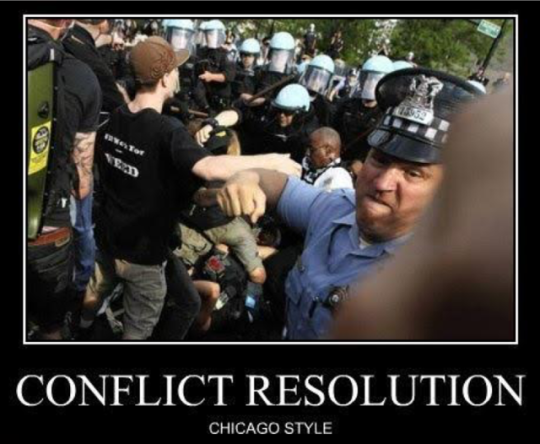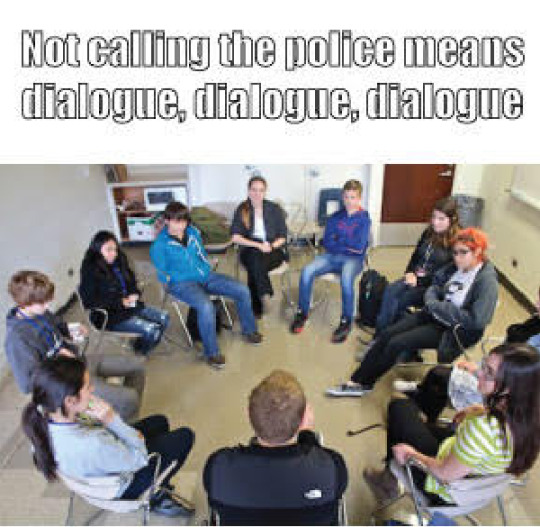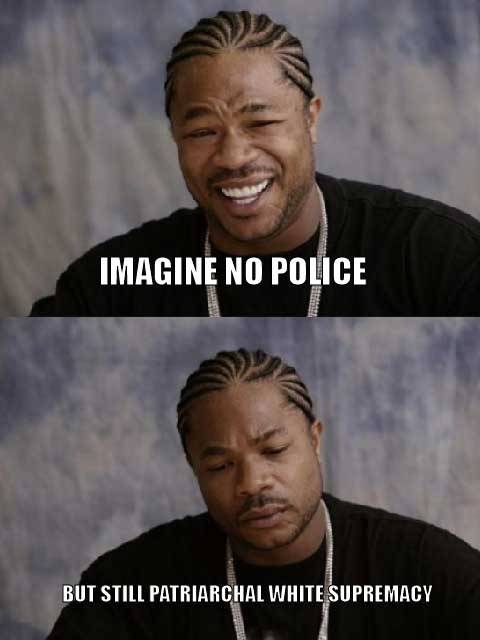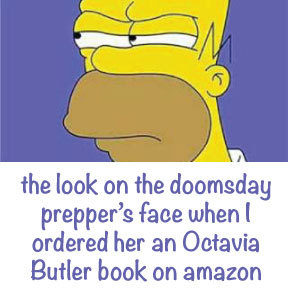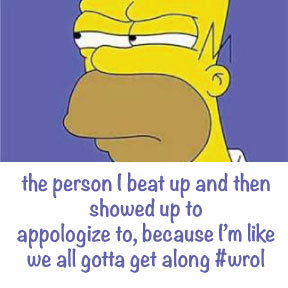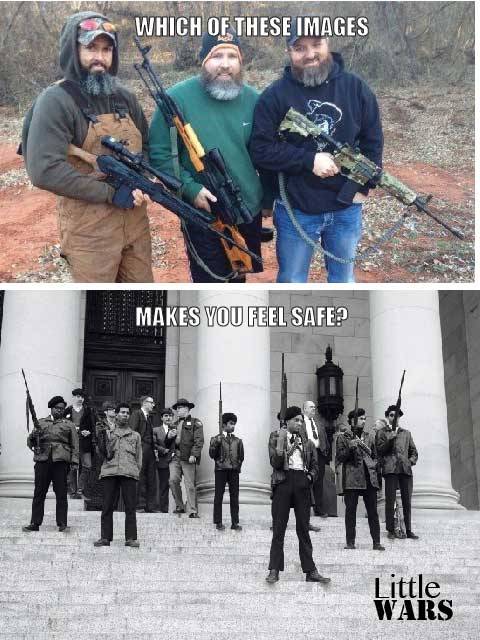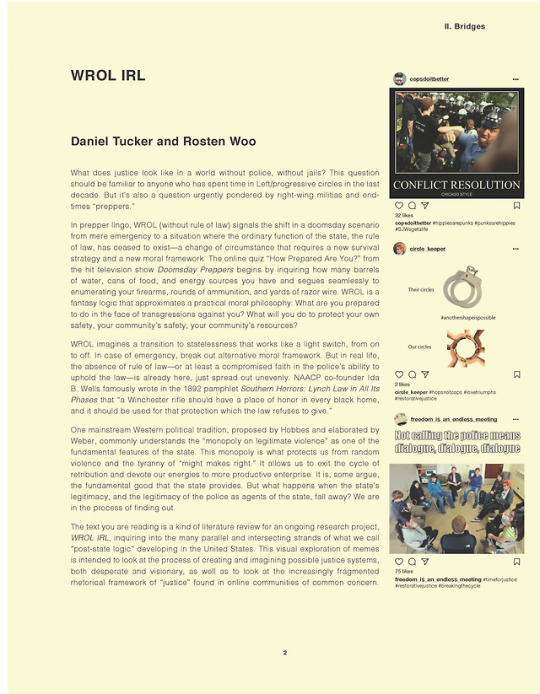Text
WROL IRL
What does justice look like in a world without police, without jails? This question should be familiar to anyone who has spent time in Left/progressive circles in the last decade. But it’s also a question urgently pondered by right-wing militias and end-times ���preppers.”
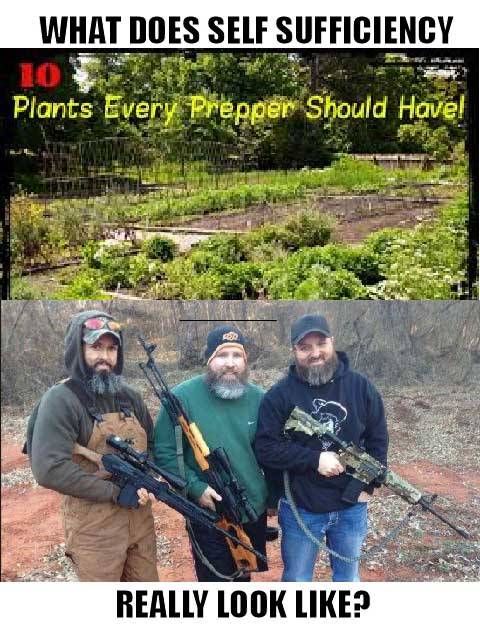
In prepper lingo, WROL (without rule of law) signals the shift in a doomsday scenario from mere emergency to a situation where the ordinary function of the state, the rule of law, has ceased to exist—a change of circumstance that requires a new survival strategy and a new moral framework. The online quiz “How Prepared Are You?” from the hit television show Doomsday Preppers begins by inquiring how many barrels of water, cans of food, and energy sources you have and segues seamlessly to enumerating your firearms, rounds of ammunition, and yards of razor wire. WROL is a fantasy logic that approximates a practical moral philosophy: What are you prepared to do in the face of transgressions against you? What will you do to protect your own safety, your community’s safety, your community’s resources?
WROL imagines a transition to statelessness that works like a light switch, from on to off. In case of emergency, break out alternative moral framework. But in real life, the absence of rule of law—or at least a compromised faith in the police’s ability to uphold the law—is already here, just spread out unevenly. NAACP co-founder Ida B. Wells famously wrote in the 1892 pamphlet Southern Horrors: Lynch Law in All Its Phases that “a Winchester rifle should have a place of honor in every black home, and it should be used for that protection which the law refuses to give.”
One mainstream Western political tradition, proposed by Hobbes and elaborated by Weber, commonly understands the “monopoly on legitimate violence” as one of the fundamental features of the state. This monopoly is what protects us from random violence and the tyranny of “might makes right.” It allows us to exit the cycle of retribution and devote our energies to more productive enterprise. It is, some argue, the fundamental good that the state provides. But what happens when the state’s legitimacy, and the legitimacy of the police as agents of the state, fall away? We are in the process of finding out.
This text is a kind of literature review for an ongoing research project, WROL IRL, inquiring into the many parallel and intersecting strands of what we call “post-state logic” developing in the United States. This visual exploration of memes is intended to look at the process of creating and imagining possible justice systems, both desperate and visionary, as well as to look at the increasingly fragmented rhetorical framework of “justice” found in online communities of common concern. We want to engage the ways that ideas and attitudes are shared, amplified, and consumed. Some of the memes shown here were invented by us, but many were found in the wild. We hope to offer readers/viewers a window into very different conversations about community justice, sovereignty, and life WROL. We believe that the growing appeal, legitimacy, and practical detail of these imaginaries reflect the urgent and current aspiration to build a world without (any longer) believing in the state.
The ideas and approaches to community justice we are interested in are scenario driven—that is, they are not elaborated as top-down principles but imagined as specific responses to conflict. In some cases they are highly practical guides; in others, highly fictional what-if scenarios, and very often strange mixes of the two. They are not political theory as Hobbes or Locke might have written it, but they imply serious ideas about the role of the state, the obligations of a community towards strangers, and what constitutes an appropriate use of violence.

0 notes
Text
ABOUT THIS PROJECT
It’s a project by Daniel Tucker and Rosten Woo
0 notes
